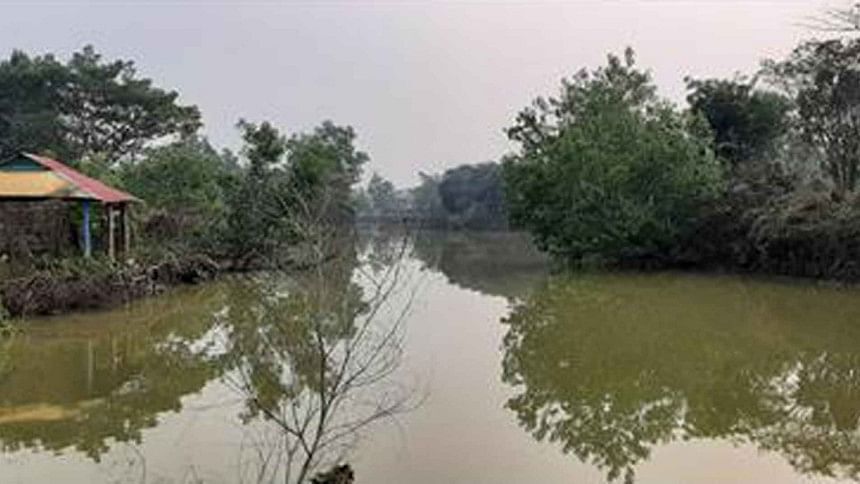We can’t always gain by monetising nature

It is saddening to note that Bangladesh ranks 177 among 180 countries preceded only by India, Myanmar and Vietnam in the Environmental Performance Index, 2022 published in early June. It also ranks 132nd and 155th in biodiversity and habitat and ecosystem services, respectively. Bangladesh identifies itself as one of the biggest victims of global environmental change and strongly advocates for environmental conservation in both national and international fora. Yet, what has brought Bangladesh to the bottom of the index? Does Bangladesh need to revisit its decision-making process? We can address these questions by taking the proposed Lathitila Safari Park in Moulvibazar district as evidence, to help better understand how our environmental decision-making ostensibly puts dents in the last remaining natural habitats of the country.
Despite poor performance in biodiversity and habitat conservation, Bangladesh Forest Department (BFD) has planned to establish the Safari Park in Lathitila – home to 209 plants and 603 animal species, many of which are on the brink of extinction. Environmental activists have been vocal against the plan because the pressure of development activities and tourism on the forest, located along the Indo-Burma Biodiversity Hotspot, may culminate in causing serious damage to the habitat quality and biodiversity of the forest. On the other hand, BFD claims that the decision would help them regain illegally grabbed forest areas. Yet, this claim lacks a comprehensive understanding of the social, environmental, and economic outcomes of the proposed safari park. A recent study led by prominent conservationist Dr Mohammad Ali Reza Khan concludes that the park will neither contribute to biodiversity conservation nor help local residents improve their socio-economic status.
Bangladesh is a signatory to the Conventions on Biological Diversity (CBD) – the global treaty of conserving biodiversity. Article 8 of the Convention prioritises the in-situ conservation of vulnerable endemic species, meaning preserving wildlife in their natural habitats. The National Conservation Strategy (2016-2031) of Bangladesh also resonates with the vision of CBD. The idea of establishing "safari parks" in natural forests is at odds with the idea of in-situ conservation. The forest habitats of Bangladesh are now under unprecedented threat, not only from deforestation and fragmentation but also from other insidious threats like climate change. Establishing a safari park in a biodiversity-rich forest for tourism will only add insult to injury.
Flawed environment decisions and resulting failures are not new in the policy context of Bangladesh. And yet, they thrive. Corruption, political interests, and scientific fallacy are some of the most notable issues believed to be prompting such decisions, although they do not portray an overall policy backdrop. All environmental decisions are guided by how decision-makers view and value the environment. These views construct decision-makers' ethical relation with the environment and, in turn, dictate their choice of decisions. Going back to the example of Lathitila forest, BFD claims that the planned safari park will attract more than a million visitors a year. Every forest has a specific capacity to accommodate visitors, beyond which the forest loses its ecological integrity. It is not clear if the optimum visitor capacity of the 270 acres core safari area of 5,100 acres Lathitila forest was measured during the planning phase of the proposed safari park. Without much reservation, it can be concluded that the BFD is viewing the forest as an income-generating resource system.
Viewing natural habitats only from an economic perspective has many shortfalls, but, fundamentally, it blurs our vision to comprehend the intrinsic functions a forest can perform for the greater good of society. For example, every forest comprises a unique social and environmental context and thrives on its natural composition of biophysical, faunal, floral, microbial, and climatic components. A forest serves many functions like storing carbon, maintaining water and nutrient cycle, and giving refuge to wildlife, to mention but a few. All these functions – also known as "ecosystem services" – are best served when the forest remains out of anthropogenic disturbances. Unfortunately, most of these services never get policy attention in most parts of the world, let alone in Bangladesh, as they are, or cannot be, appropriately measured and valued in monetary or any other terms due to scientific and policy limitations. Thus, decision-makers often turn a blind eye to these services, although once destroyed, it is almost impossible to retrieve an original forest ecosystem.
National responsibilities to conserve natural environment and native biodiversity have always been compromised in Bangladesh for the sake of economic development. In the face of rapid natural ecosystem loss, Bangladesh should account for the functional values of rich natural ecosystems and mainstream them in environmental decision-making. Policymakers can move a step closer to protecting natural ecosystems by making an ethical shift from their pro-economic development stand to a combined social and environmental stewardship stance. We need to acknowledge that our present decisions will be judged in the future when retrieval from any flaw will appear complicated and its expenses will only be paid by the generations to come. As the custodians of future generations' right to survive in a healthy environment, we should take practical actions rather than making empty commitments. Conserving natural habitats like Lathitila forest by limiting their economic uses could be a policy gesture to manifest our promise and in more practical terms, will improve the country's position in global environmental measures.
Dr HM Tuihedur Rahman is a Writing Fellow with the Fellowship for Freedom in India. He is currently a Postdoctoral Researcher at the Department of Agricultural and Resource Economics, University of Saskatchewan, Canada.

 For all latest news, follow The Daily Star's Google News channel.
For all latest news, follow The Daily Star's Google News channel. 








Comments